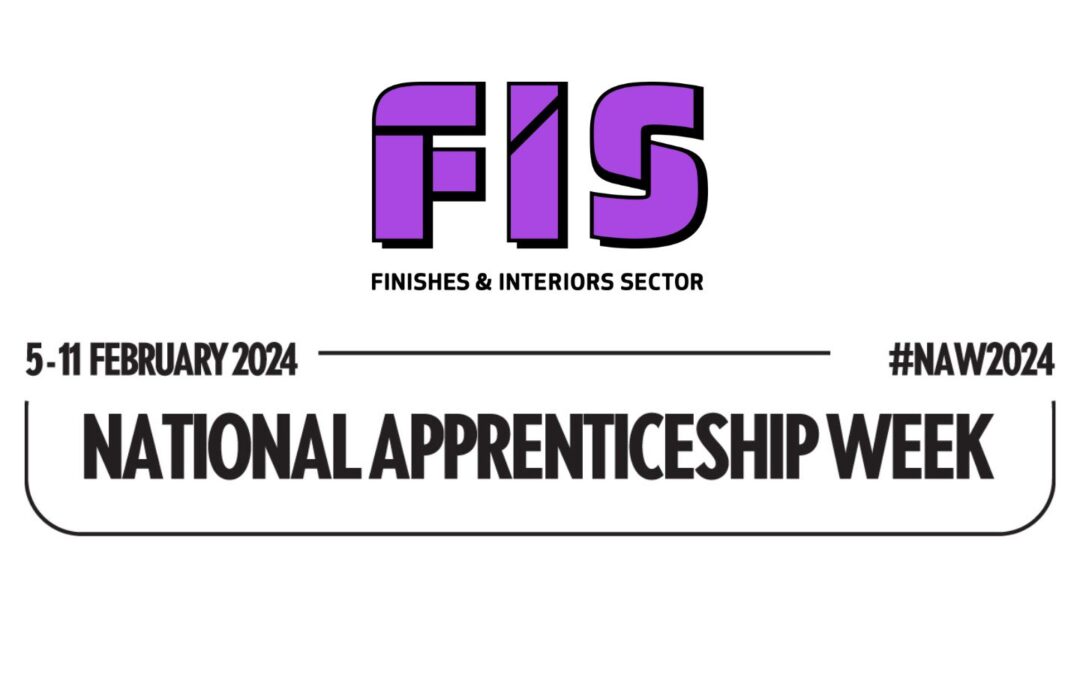FIS Q1 2024 State of Trade Survey
FIS State of Trade Survey Q1 2024 highlights that inflation has slowed, but prices continue to rise due to raw materials and wages.
Workloads reported by FIS members in the final quarter of 2023 were mixed. Whilst a balance of 9% experienced growth, close to a quarter reported no changes quarter-on-quarter and the difference between those growing by over 5% and declining by over 5% was marginal.
Looking to the next quarter (Q1 2024) the expectation for most is more positive with 30% anticipating growth of over 5%, but this is balanced by 34% expecting their market to level out and 23% expecting the market to tighten and a further.
Members can dowload a full copy of the FIS State of Trade Survey Q1 2024 here
Alignment with wider industry forecasts
FIS data is gathered with the support of the COnstruction Products Association, who this week published the Construction Products Association’s Winter Forecasts.. Construction output is forecast to fall by 2.1% this year due to falls in private housing new build and repair, maintenance and improvement (rm&i) – the two largest construction sectors. The CPA forecasts that construction output will rise by 2.0% in 2025 in line with falling interest rates and a general economic recovery, which, in turn, could ease challenges in the housing and rm&i sectors. Recent disruptions in the Red Sea, however, have been identified as a key risk to the forecasts, potentially leading to supply issues such as delays and accelerating cost inflation.
Private housing – the largest construction sector – suffered a double-digit fall last year after a spike in mortgage rates hit housing market demand. Consequently, many house builders have reported a fall of around 25-35% in demand, in addition to the regulatory issues that smaller house builders continue to face in particular around planning, as well as water and nutrient neutrality. The lagged effect of higher mortgage rates is likely to continue to weigh upon property transactions this year with private housing output expected to fall by a further 4.0%. Looking to next year, a gradual fall in interest rates should boost demand with private housing output expected to rise by 4.0%. This doesn’t imply a speedy recovery however, as interest and mortgage rates are not expected to return to the record lows seen as recently as 2021 anytime soon. The lack of a government policy stimulus to help overcome high deposit and mortgage payment requirements, also means the recent peaks in housebuilding from 2022 are unlikely to be seen again until at least the end of the decade.
Private housing rm&i is the second-largest construction sector and activity continues to be on a general downward trend. The rising cost of living has hit discretionary household improvements spending. In addition, fewer property transactions last year led to a decline in refurbishment activity from new homeowners who typically make cosmetic improvements within the first 6-9 months of moving in. Smaller project work is likely to continue to remain flat in the first half of this year as household spending remains tight, whilst the continued fall in property transactions in the first half of this year is likely to hit larger project work for the remainder of 2024. This is likely to be partially offset though by strong activity on energy-efficiency retrofit such as insulation and solar photovoltaic work. Overall, private housing rm&i output is expected to fall by 4.0% in 2024 before growth of 3.0% in 2025.
In infrastructure, which is the third-largest construction sector, activity remains strong down on the ground. Work continues apace on HS2 Phase One despite the most recent cost increases, as well as on Hinkley Point C and the Thames Tideway Tunnel. Frameworks activity in the regulated sectors of roads, rail, water and electricity provides sustained levels of activity in the infrastructure sector too. Concerns remain, however, over pauses and delays to National Highways projects, as well as increasing uncertainty on the deliverability of plans in the water sector to deal with water quality issues through increased capital expenditure. Furthermore, at a local level, councils continue to face financial constraints and despite government announcing £8.3 billion of funding for potholes, resurfacing and roads projects to 2034, there is little evidence to suggest that this will lead to any uplift over the forecast period. As a result, overall, infrastructure output is expected to fall by 0.5% in 2024, a third successive marginal fall in output, before rising by 1.2% in 2025.
Commenting on the Winter Forecasts, CPA Economics Director, Noble Francis said: “The bad weather at the start of January has already affected the construction industry but there is still lots of time for a catch up in activity when the weather improves. The bigger problems for the industry are the hits to activity last year in its two largest sectors – private housing and private housing rm&i. These are likely to continue into 2024. Even with expected falls in interest and mortgage rates in the second half of this year, rates are likely to remain relatively high and so demand in the housing market, house building sector and rm&i sector is likely to remain subdued overall.
“Given the importance of housing to the UK economy, it was disappointing that the Chancellor’s Autumn Statement last year had little to help the beleaguered sector. It is critical that we see measures to help boost house building and homeownership from government in the upcoming Spring Budget. Furthermore, government should do more on infrastructure delivery given that the sector is set for its third consecutive fall in output. This is despite announcements from government on new projects to compensate for the cancelling of the Northern leg of HS2.”






